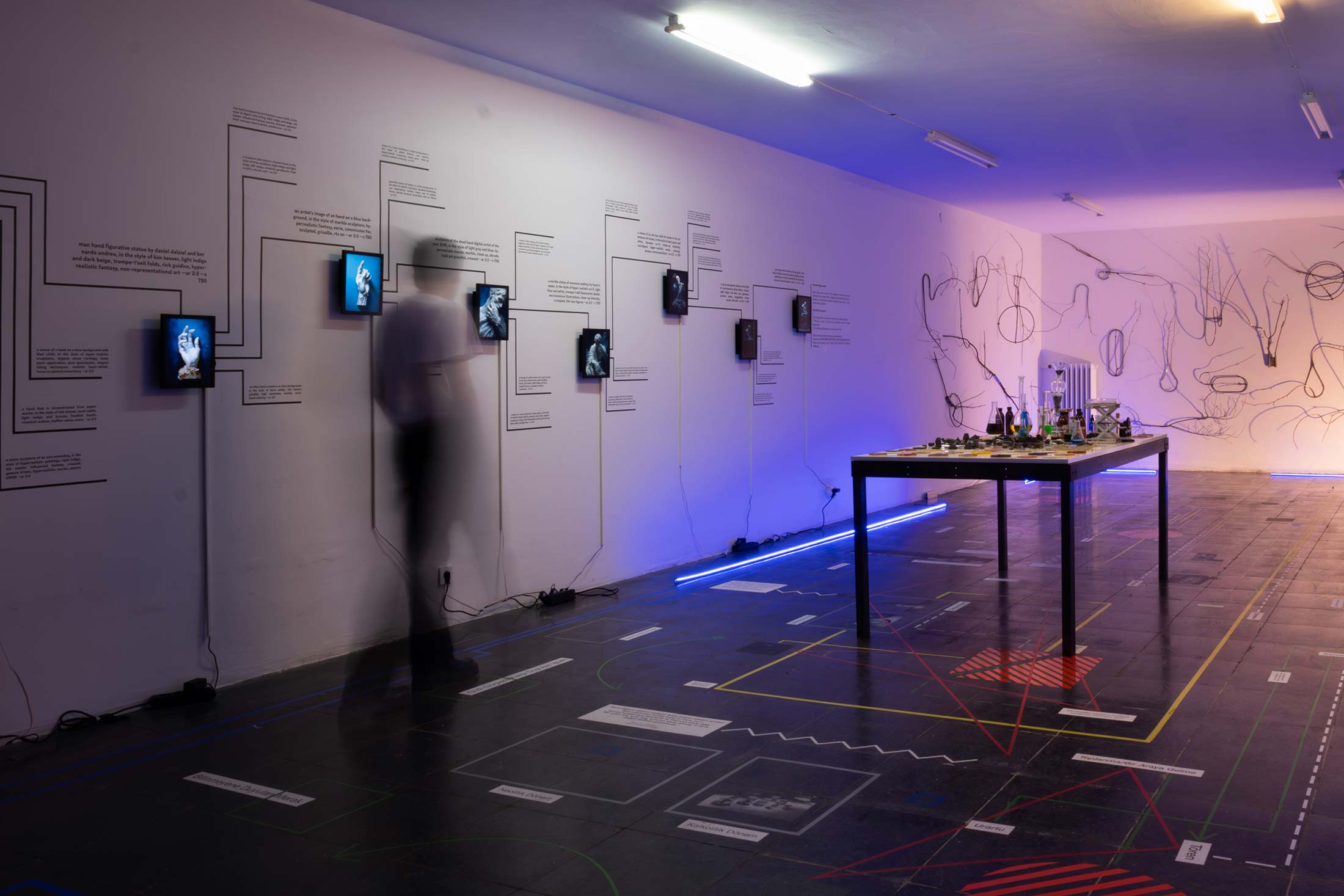
Zümra Çetinler, Meriç Kara, Burcu Özgen, Rıza Efe Reis, Heper Sayar and Eren Yıldırım, who come from different backgrounds and fields such as industrial design, interior architecture, theater and psychology, are trying to resist the imposing education system they are in and to transform art education into a creative form as an important part of the art environment, and they think that this exhibition will pave the way for artistic learning opportunities with independent organisations outside the university system as the beginning of a different discussion. They are preparing to present the artistic research processes they have adopted and applied to the audience at İMÇ Block 5, 5541, between 16 December – 06 February, under the mentorship of İnci Eviner.
The ‘Performative Research Methods‘ studio of Kadir Has University Design Master’s Program, which is the starting point of this exhibition and led by İnci Eviner, enabled a dynamic workshop environment where each artist/researcher discovered what their individual interests really are, overcame the walls separating “science” and “art” and embraced the liberating methods of art while discussing the conditions of art and its interaction with other disciplines and life. It also enabled artists to critically approach their disciplines by going beyond the conventional research methods within the university education system. Within the university system, where art is usually excluded from the curriculum, art as a field of knowledge production was experienced in a live workshop that was much more inclusive and paved the way for creativity. It would not be wrong to say that the results of a lively environment that mediates the transformation of concepts and notions, practice and theory, culture and nature relations through the methods of art, experiencing, researching and transforming themselves while also transforming their original ideas with the material, are also enlightening for the university education system that excludes art.
This exhibition focuses on our century’s present and future responses and impacts. Its narrative exists in a flow, with each artist focusing on a different aspect of everyday life by rethinking and transforming their impact on the world. Zümra Çetinler is moving towards new nature research that investigates the damage caused to the water ecosystem by single-use plastics that increase with rapid consumption from a different perspective and in this sense, experiences nature through the wastes that it takes in and transforms. Zümra treats the plastic population in Kısırkaya Beach as a flora, and accordingly, with a biodegradable material design, Zümra places this fake plant cover back in the area where it is located, and in doing so, she aims to interlock with the natural cycle itself by keeping the intervention to nature to a minimum. Based on mass production and its relationship with the materials produced, Meriç Kara takes her place in the exhibition with an installation in which she combines metal materials produced for a commercial purpose with waste tree branches found in nature. Focusing on museology from the past to the present, Burcu Özgen draws attention to the changes in museum spaces today and focuses on how old spaces, which she redesigned according to the interaction between ages, can be reconstructed today and aims to build a bridge from the present to the future by asking the participants the question “What is the thing to be exhibited from today to the future?” through the museum guide she has produced, and thus aims to connect the traces of the past with modern time. Working on performative practices beyond the stage, Rıza Efe Reis focuses especially on the performative expression of future depictions. He works on what kind of influences and pledges can be created by words and actions that are never permanent in time. Heper Sayar, who questions all our daily lives again with the introduction of algorithms beyond mechanisation, focuses on the limits of their capacities and their internal dynamics through autonomy by positioning artificial intelligence software as organisms with a cognitive system. Eren Yıldırım, who researches electric scooters, their routes and habitats living in the cities we often encounter today, rescues waste scooter parts from the junkyards where they are abandoned and redesigns them as relics of the future.
Tuesday-Saturday:
11.00—19.00
Sunday: 12.00—18.00
Monday: Closed
